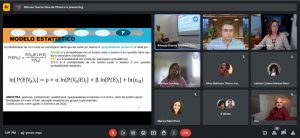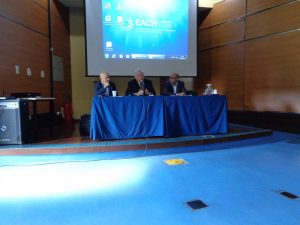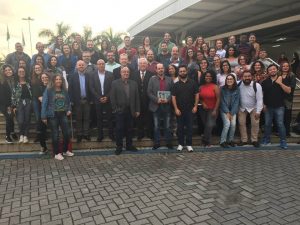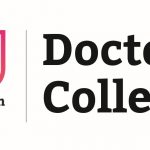by Dr. Miguel Moital, Principal Academic in Events Management, Department of Sport & Events Management, BUBS
On Friday I was an external examiner for a PhD at the University of São Paulo (USP), Brazil. The thesis was entitled “Heuristics and biases in the mental estimation of the share of segments of the public in tourism”, with the study framed within the behavioural economics area. The thesis was supervised by Dr. Glauber Santos (USP) and Verônica Feder Mayer (UFF – Fluminense Federal University). Other examiners included Marlusa Gosling (UFMG – Federal University of Minas Gerais), Osiris Marques (UFF) and Otávio Freire (USP).


The PhD candidate Rômulo Duarte was approved by unanimity, and rightly so. This was one of the best thesis I have examined. It was short and straight to the point, at 150 pages from introduction to conclusion. Or as one of the other examiners said “there is no fat”. It included a strong theoretical foundation and adopted a quasi-experimental approach, containing 6 different studies which worked together well to answer the aim. Experimental approaches are not common in the tourism literature, hence it is great to see more studies using this method. From reading the thesis it is clear that Rômulo has an exceptional ability to explain well complex ideas, alternative approaches, dilemmas, limitations and possible solutions. He also expertly answered my questions, as well as those from the other examiners.
On a more personal note, it was good to see that my contributions to the development of the Brazilian tourism research were acknowledged. I have been fairly active in my interaction with Brazilian tourism academia since 2008, having been guest speaker at conferences and guest sessions many times. The latest one was in 2019, where I was a guest speaker at the opening sessions of the PhD Programme in tourism at USP, the programme that Rômulo graduates from.

One of the weaknesses of Brazilian tourism research is its over-focus on the context elements, at the expense of theory. My presentation in 2019 was all about the need to prioritise the theoretical element, and to make my point I used examples of journal article titles, comparing those from Brazilian tourism journals against those from top international tourism journals. During the viva I highlighted the fact that the thesis title was unlike the traditional structure, which starts with the content and then highlights the theory element. In Rômulo’s case it was short and concise, emphasising the theoretical elements at the expense of the context elements.

Prof. Glauber Santos clarified that such focus was a legacy of my work over the years, including the 2019 session, with Rômulo commenting that after he attended that session he kept this message as a focal point for this research, including in the construction of the title.
I would like to publicly congratulate Dr Rômulo Duarte, as well as his supervisors Glauber and Verônica and the Tourism PhD Programme at USP. Tourism academia is now just a little bit stronger with the addition of another skilled researcher.
 Reflections on examining a hybrid PhD or PhD by Publication
Reflections on examining a hybrid PhD or PhD by Publication










 New CMWH paper on maternity care
New CMWH paper on maternity care From Sustainable Research to Sustainable Research Lives: Reflections from the SPROUT Network Event
From Sustainable Research to Sustainable Research Lives: Reflections from the SPROUT Network Event REF Code of Practice consultation is open!
REF Code of Practice consultation is open! ECR Funding Open Call: Research Culture & Community Grant – Apply now
ECR Funding Open Call: Research Culture & Community Grant – Apply now ECR Funding Open Call: Research Culture & Community Grant – Application Deadline Friday 12 December
ECR Funding Open Call: Research Culture & Community Grant – Application Deadline Friday 12 December MSCA Postdoctoral Fellowships 2025 Call
MSCA Postdoctoral Fellowships 2025 Call ERC Advanced Grant 2025 Webinar
ERC Advanced Grant 2025 Webinar Update on UKRO services
Update on UKRO services European research project exploring use of ‘virtual twins’ to better manage metabolic associated fatty liver disease
European research project exploring use of ‘virtual twins’ to better manage metabolic associated fatty liver disease